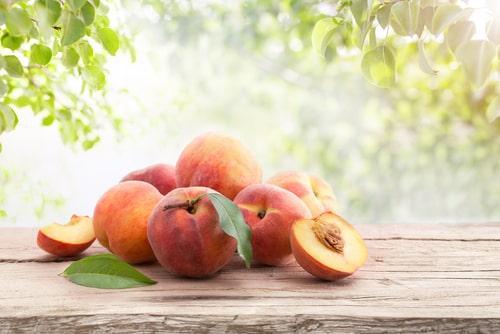
312-981-0409
33 N Dearborn St 10th Floor, Chicago, IL 60602
Serving Clients Across 7 Illinois Locations
Peaches Responsible for One of the Largest Salmonella Outbreaks of 2020
 Even though consumers in the United States expect the food products they purchase to be safe, the systems that are meant to protect against the spread of dangerous pathogens sometimes fail. When food that is tainted by viruses, bacteria, or other toxic substances is made available for purchase, this can result in food poisoning, which can cause long-lasting injuries to those who are affected. Salmonella is one of the most common sources of foodborne illnesses, and a variety of food products have been found to be contaminated by this bacteria. In 2020, one of the largest salmonella outbreaks was caused by peaches sold at grocery stores in multiple different states.
Even though consumers in the United States expect the food products they purchase to be safe, the systems that are meant to protect against the spread of dangerous pathogens sometimes fail. When food that is tainted by viruses, bacteria, or other toxic substances is made available for purchase, this can result in food poisoning, which can cause long-lasting injuries to those who are affected. Salmonella is one of the most common sources of foodborne illnesses, and a variety of food products have been found to be contaminated by this bacteria. In 2020, one of the largest salmonella outbreaks was caused by peaches sold at grocery stores in multiple different states.
Recall of Prima Wawona Peaches
A multi-state outbreak of Salmonella Enteritidis occurred between June and August of 2020. According to the CDC, 101 people in 17 states were infected, and while no deaths occurred, 28 people were hospitalized. These infections were traced to peaches packed and distributed by Prima Wawona and the Wawona Packing Company. This led the company to recall both bagged and loose peaches that had been distributed to grocery stores in multiple states.
The recall included peaches sold nationwide at the following stores:
- Aldi
- Walmart
- Target
- Food Lion
- Kroger
- Ralphs
- Food 4 Less
- Stop & Shop
- Wegmans
- Festival Foods
- Hannaford
- Jay-C
- King Soopers
- City Market
- Fry’s
- Foods Co.
- Smiths
Some other products containing contaminated peaches were also recalled. These include bakery items produced in Wegmans stores and gift baskets and peach salsa products sold at Russ David Wholesale stores.
Food Safety Issues Related to Peaches and Salmonella
The CDC declared that this outbreak was over in October of 2020, but it is still investigating to determine the source of the contaminated peaches. It noted that consumers should always wash their hands, utensils, and surfaces before and after handling peaches or other fruits. Fruits should also be washed thoroughly and kept separate from other foods that could cause contamination, such as raw meat. Consumers should also be aware that frozen peaches could potentially still spread infection, since freezing does not kill salmonella bacteria. Any frozen fruits that may have been infected should be disposed of.
Following a salmonella infection, a person may experience symptoms such as fever, abdominal cramps, and diarrhea. These will usually occur within one week after eating contaminated food, and they may persist for four to seven days. In severe cases, an infection may spread to the bloodstream and other parts of the body, and hospitalization may be necessary to prevent further complications or health issues.
Contact Our Chicago Salmonella Injury Lawyers
Salmonella and other foodborne illnesses can cause a person to suffer serious harm, and food poisoning can have long-lasting effects on their health and well-being. If you have contracted food poisoning, the lawyers of Newland & Newland, LLP can investigate your case to determine who was responsible, and we will work to hold these parties liable for the harm you have suffered. Contact our Illinois food poisoning attorneys today at 312-981-0409 to set up a free consultation.
Sources:
https://www.fda.gov/food/outbreaks-foodborne-illness/outbreak-investigation-salmonella-enteritidis-peaches-august-2020
https://www.cdc.gov/salmonella/enteritidis-08-20/index.html
https://www.consumerreports.org/food-recalls/salmonella-outbreak-linked-to-peaches-recall/
-

Foreclosure and Bankruptcy
Visit Website -

Real Estate and Estate Planning
Visit Website -

Personal Injury
Visit Website

 Spanish
Spanish Cantonese
Cantonese















